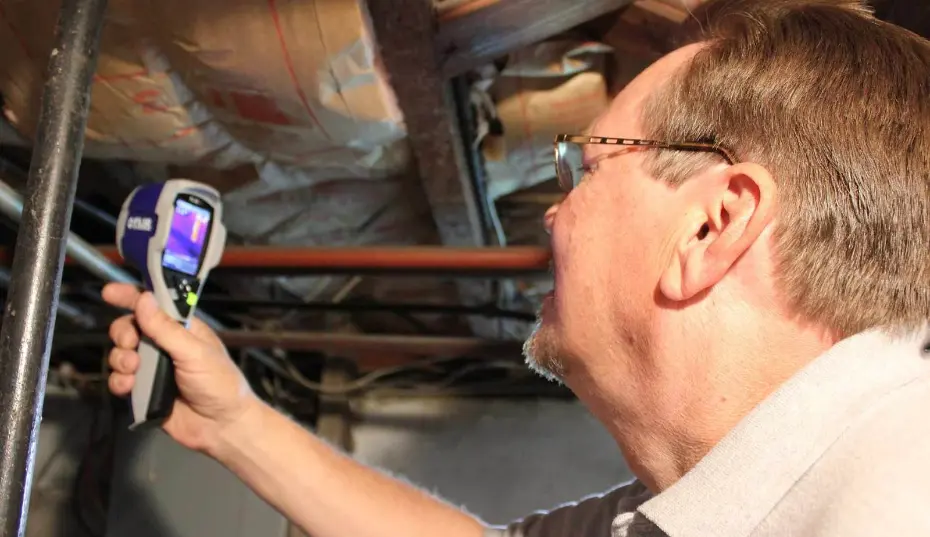Navigating the Virginia Beach real estate market presents unique challenges, particularly when it comes to addressing mold issues. Many agents may underestimate the impact mold can have on property transactions. Understanding the importance of mold inspections not only protects agents from potential legal liabilities but also enhances their reputation and trustworthiness with clients.
As buyers become more informed about health risks associated with mold, their demand for thorough inspections prior to purchase is growing. Agents need to advocate for mold inspections as a standard part of the buying process to safeguard their clients' investments. Working alongside reputable companies like Mastertech Environmental ensures that homes are assessed accurately, allowing both buyers and sellers to make informed decisions.
By prioritizing mold inspections, agents can help their clients navigate the complexities of real estate deals. Knowledge of mold implications can differentiate an agent in a competitive market, demonstrating a commitment to transparency and due diligence.
Virginia Beach Real Estate: The Impact of Mold on Property Deals
Mold presence in real estate transactions poses significant challenges in Virginia Beach. It affects property value, compliance with legal obligations, and negotiation strategies during the sale process.
Why Mold is a Deal Breaker in Virginia Beach
Mold can significantly diminish a property’s appeal and value. Potential buyers often see mold as a sign of neglect or extensive damage, leading them to withdraw offers or negotiate lower prices.
Properties with mold issues may also face difficulties obtaining financing, as lenders often require inspections. Consequently, buyers may seek homes without mold complications, making it a critical concern for sellers.
Beyond aesthetics, mold poses health risks, further deterring buyers. Awareness of these factors helps real estate agents navigate listings with mold and manage expectations.
Understanding Mold Disclosures in Real Estate Transactions
In Virginia, sellers must comply with disclosure laws regarding mold. This means informing potential buyers about any known mold issues or previous remediation efforts.
Agents should guide sellers in accurately reporting mold conditions. Failure to disclose can lead to legal ramifications, as buyers may seek recourse if they discover undisclosed mold post-purchase.
Real estate agents also need to advise clients on the importance of pre-listing inspections. These inspections help identify mold issues early, allowing sellers to address them proactively.
This transparency fosters trust and potentially speeds up the sale process. Clear disclosure can mitigate surprises during negotiations and enhance overall transaction integrity.
Negotiating Mold Remediation and Repairs
Effective negotiation surrounding mold issues is essential. Buyers may request remediation before finalizing the purchase or seek price reductions to cover remediation costs themselves.
Agents must facilitate communication between buyers and sellers, aiming for agreements that satisfy both parties. They should be knowledgeable about local mold remediation services in Virginia Beach, recommending certified professionals.
Documentation of any remediation work done is crucial. It not only provides buyers with peace of mind but also serves as a record for future transactions.
In these discussions, agents can suggest reasonable timelines for remediation, ensuring that negotiations remain productive and focused on closing the deal efficiently.
Professional Mold Inspections: Essential Knowledge for Agents
Understanding the importance of professional mold inspections is critical for real estate agents. Comprehensive knowledge equips them to guide clients effectively through transactions, ensuring safety and compliance.
Selecting a Certified Mold Inspector
Choosing a qualified mold inspector is crucial. Agents should prioritize inspectors certified by recognized organizations, such as the Institute of Inspection, Cleaning and Restoration Certification (IICRC). Certification ensures that inspectors have met strict educational and practical standards.
Agents should verify an inspector’s experience and client reviews. A solid reputation in the Virginia Beach area indicates reliability. Clients benefit from inspectors using advanced equipment, ensuring accurate assessments of mold presence and sources of moisture.
A list of questions to consider when selecting an inspector includes:
- What certifications do you hold?
- Can you provide references from past clients?
- What techniques do you use during inspections?
Advantages of a Professional Mold Inspection
Professional mold inspections offer numerous benefits that safeguard both buyers and sellers. They provide a comprehensive assessment of the property's condition. Detecting mold early allows for timely remediation, preventing potential health risks and structural damage.
Another advantage is that a professional report can enhance the credibility of the transaction. Listing agents can use the inspection report to build trust with potential buyers, showing that they have proactively addressed mold concerns.
Key benefits include:
- Early detection of hidden mold
- Prevention of costly repairs down the line
- Enhanced confidence in the transaction
Differences Between Mold Testing Methods
Mold testing methods vary, and agents should be aware of these differences to provide informed guidance. The most common are surface sampling, air quality testing, and bulk sampling.
Surface Sampling involves collecting samples from suspected mold growth areas. It’s useful for identifying specific mold types.
Air Quality Testing assesses indoor air for mold spores, providing a broader view of mold presence. This method is essential in areas where mold isn't visibly apparent.
Bulk Sampling collects materials suspected of harboring mold. This method is beneficial for assessing the extent of mold growth in construction materials.
Understanding these methods enables agents to recommend the most appropriate testing approach based on their client’s specific situation.
Recognizing Signs of Mold Growth in Virginia Beach Properties
Identifying mold growth in properties is essential for maintaining a healthy living environment. Agents should be trained to detect both visible and hidden signs of mold, as well as understand the associated health and structural risks.
Visible Mold vs. Hidden Mold
Visible mold is often found in damp areas such as bathrooms, kitchens, and basements. Common signs include dark spots on walls, ceilings, and floors. Mold can appear in various colors like black, green, or white.
In contrast, hidden mold typically grows in areas that are not easily accessible, such as behind walls, under carpets, or within HVAC systems. It thrives in moist, enclosed spaces, making it challenging to detect. Agents need to encourage clients to be vigilant for musty odors, which can indicate the presence of hidden mold, even when no visual signs are present.
Health and Structural Risks of Mold
Mold poses serious health risks, particularly for individuals with respiratory issues, allergies, or weakened immune systems. Exposure can lead to symptoms such as coughing, nasal congestion, and skin irritation.
Structurally, mold can undermine the integrity of a building. It feeds on organic materials like wood and drywall, leading to potential damage that can be costly to repair. Agents should stress the importance of addressing mold issues promptly to prevent further deterioration and ensure a safe living space. Regular inspections and prompt action can help mitigate these risks.
The Mold Inspection Process: What to Expect
Understanding the mold inspection process is essential for real estate agents and homeowners alike. The following segments provide insight into the specific steps and techniques involved in professional mold inspections.
Steps in a Standard Mold Inspection
A standard mold inspection typically begins with a visual examination of the property. Inspectors look for signs of mold, which may include discoloration on walls, ceilings, or other surfaces. They also assess areas prone to moisture, such as kitchens, bathrooms, and basements.
After the visual inspection, the technician may conduct a thorough risk assessment. This step involves checking ventilation systems, plumbing leaks, and humidity levels. Moisture meters and infrared cameras are often used to detect hidden mold growth behind walls or under floors.
Finally, inspectors may provide a detailed report outlining their findings, including the extent of mold contamination and any necessary remediation steps. This comprehensive evaluation is crucial for determining the proper course of action.
Sampling Techniques for Mold Testing
Mold sampling is an integral part of the inspection process, allowing professionals to identify mold species and quantify levels present. The two primary sampling techniques include air sampling and surface sampling.
- Air Sampling: This method captures airborne mold spores that may not be visible. Air samples are analyzed in a lab to determine the concentration of mold species in the environment.
- Surface Sampling: This involves taking samples from visible mold patches or suspected contaminated surfaces. Swabs or tape lifts are commonly used to collect these samples.
Both techniques are essential for obtaining an accurate assessment of mold risks within a property. The data gathered informs both the property owner and remediation professionals about the necessary actions.
Post-Remediation Verifications
After remediation efforts are completed, post-remediation verifications ensure that mold levels have returned to acceptable limits. This process typically involves a follow-up inspection and additional air and surface sampling to confirm that the remediation was effective.
Inspectors compare the new samples to baseline levels, which were recorded during the initial inspection. If levels still exceed accepted thresholds, further remediation may be required.
Documentation of these results is crucial for maintaining compliance and ensuring a safe living environment. A complete verification process provides peace of mind for owners and agents involved in Virginia Beach real estate dealings.
Mold Remediation Solutions for Virginia Beach Agents and Homeowners
In Virginia Beach, understanding mold remediation is vital for real estate agents and homeowners. Effective solutions ensure properties remain safe and marketable, while informed decisions lead to better outcomes.
Choosing the Right Mold Remediation Service
Selecting an appropriate mold remediation service is crucial. Agents and homeowners should look for companies with a solid reputation and extensive experience in Virginia Beach.
Key factors to consider include:
- Certifications and Training: Ensure technicians are professionally certified in mold remediation techniques.
- Insurance and Bonding: A reliable service should be fully insured and bonded to protect clients during the remediation process.
- Techniques and Equipment: Companies should use advanced equipment for effective mold removal and prevention.
- Local Experience: Look for services familiar with Virginia Beach’s unique climate and common mold issues.
Reading customer reviews and testimonials can provide insight into the service's reliability and effectiveness.
Evaluating Remediation Quotes and Guarantees
When assessing quotes for mold remediation, transparency is essential. Homeowners and agents should request detailed estimates outlining all costs involved.
Consider these elements in quotes:
- Scope of Work: Ensure the quote includes a complete description of the remediation process.
- Duration: Inquire about the expected timeline for the project to understand potential disruptions.
- Guarantees: A trustworthy company will often provide a guarantee or warranty on their work, ensuring that if mold returns within a certain period, they will remediate it at no extra charge.
The goal is to not only secure a fair price but also ensure high-quality service that meets industry standards.
Legal and Financial Implications of Mold in Real Estate Transactions
Navigating mold-related issues in real estate transactions involves understanding disclosure requirements and insurance implications. Both aspects are vital for real estate agents operating in Virginia Beach, where humidity can exacerbate mold growth.
Disclosure Requirements for Sellers
In Virginia, sellers must disclose known mold issues as part of the property’s condition. This legal obligation aims to ensure transparency and protect buyers from potential health risks. Non-disclosure can lead to litigation, with buyers eligible to claim damages.
Key considerations include:
- Timing: Sellers should disclose mold issues before entering a sales contract.
- Documentation: Providing records of past mold inspections or remediation efforts can shield sellers from future liability.
- State Laws: Understanding Virginia’s specific statutes regarding mold disclosures will help avoid penalties.
Agents must guide sellers in fulfilling these obligations accurately to mitigate risks.
Insurance and Warranty Coverage Considerations
Insurance policies often cover mold damage, but the specifics can vary significantly. Agents should encourage clients to review their coverage comprehensively.
Key points include:
- Homeowners Insurance: Many policies exclude mold damage unless specifically included. Agents should recommend policy adjustments if mold coverage is lacking.
- Warranties: Some mold remediation companies offer warranties. Clients should understand what these warranties cover and the conditions that void them.
- Liability Risks: If mold issues emerge post-sale, insurance claims can complicate future transactions. This can impact the property’s value and the seller's financial responsibility.
By clarifying these aspects, agents can help clients navigate the financial implications of mold in Virginia Beach real estate deals.
Best Practices for Real Estate Agents: Preventing and Addressing Mold Issues
Real estate agents play a vital role in managing mold issues in property transactions. By implementing best practices, they can help prevent mold-related complications and address any concerns that arise during the buying and selling process.
Preparing a Property for Listing
Before listing a property, agents should recommend a thorough mold inspection. This proactive step helps identify any existing mold problems, ensuring transparency with potential buyers.
Agents should also advise sellers to fix any water damage. Mold thrives in damp environments. Addressing leaks, improving ventilation, and maintaining dry surfaces can significantly reduce mold risks.
A clean, well-maintained property can increase buyer confidence. Agents should emphasize the importance of presenting a mold-free environment. Including mold remediation in the pre-listing process not only protects health but also enhances property value.
Agent Communication with Buyers and Sellers
Communication regarding mold issues is essential. Agents should educate both sellers and buyers about the implications of mold on health and property value. They can outline necessary steps for mold remediation when applicable.
When discussing mold, clarity is key. Agents should provide comprehensive information about past mold inspections and remediation efforts. It's beneficial to document any mold-related concerns in writing.
Encouraging open dialogue about mold fosters trust. Agents can reassure clients by sharing industry knowledge, which can facilitate smoother transactions. By being proactive and responsive, agents position themselves as reliable advisors in real estate deals.
Partnering with Mastertech Environmental: Expert Support for Mold Concerns
Real estate agents in Virginia Beach should be aware of mold issues that may arise during property transactions. Collaborating with Mastertech Environmental offers invaluable support in navigating these concerns effectively.
Mastertech Environmental’s Services in Virginia Beach
Mastertech Environmental provides comprehensive mold inspection, testing, and remediation services tailored for Virginia Beach properties. The company employs certified inspectors who utilize advanced techniques, including moisture mapping and thermal imaging, to identify hidden mold problems.
Their mold inspection process is thorough, assessing both residential and commercial properties. If mold is found, Mastertech initiates a detailed remediation plan, ensuring that the affected areas are safely treated and restored to a healthy state.
Mastertech Environmental offers a five-year warranty on their mold removal services, providing clients with peace of mind. This commitment underscores their expertise and dedication to effective mold management.
Benefits of Collaboration for Agents
Real estate agents benefit significantly from partnering with Mastertech Environmental. Access to their mold inspection services allows agents to identify potential issues early, reducing the likelihood of complications during property transactions.
Agents can provide clients with a trustworthy resource for mold concerns, enhancing their professional reputation. This partnership facilitates smoother closings by addressing mold issues before they escalate.
Mastertech Environmental's detailed reports and remediation strategies can strengthen an agent's negotiation position. By demonstrating proactive management of mold risks, agents can build stronger relationships with clients, ensuring satisfaction and trust.
Through this collaboration, agents gain resources that enhance their ability to serve clients effectively, making them more competitive in the real estate market.
Frequently Asked Questions
Understanding the nuances of mold inspections is essential for real estate agents in Virginia Beach. This section addresses common inquiries related to mold assessments, their significance in transactions, and the responsibilities of agents.
How do real estate agents approach mold inspections in Virginia Beach properties?
Real estate agents typically recommend mold inspections during the buying process, especially in areas prone to moisture. They can guide clients to certified inspectors to assess the property thoroughly.
Agents also inform sellers about the benefits of proactive inspections to address potential mold issues before listing the home, ensuring transparency in the transaction.
What are the key indicators that a property requires a professional mold inspection?
Signs that a property may need a professional mold inspection include visible mold growth, musty odors, and previous water damage instances. Homeowners should also consider inspections if there is high humidity or evidence of leaks.
If buyers notice any of these indicators during viewings, a mold assessment is advisable to ensure safety and integrity.
Can failing to conduct a mold inspection affect real estate transactions in Virginia Beach?
Failing to conduct a mold inspection can lead to significant complications in real estate transactions. Mold issues may arise post-sale, resulting in conflicts and potential legal disputes.
Buyers may back out of deals or seek financial remediation if mold is discovered after closing.
What is the role of Mastertech Environmental in mold inspection for Virginia Beach real estate?
Mastertech Environmental provides specialized mold inspection services in Virginia Beach, offering comprehensive assessments. Their certified inspectors utilize advanced techniques and equipment to identify mold types and assess contamination levels.
This expertise helps agents and buyers understand the extent of mold issues and necessary remediation steps.
How should Virginia Beach real estate agents disclose mold findings to potential buyers?
Real estate agents must disclose any known mold findings to potential buyers transparently. This includes providing documentation from inspections and any remediation efforts taken.
Open communication builds trust and ensures that buyers are fully informed about the property's condition.
What are the legal responsibilities of real estate agents in Virginia Beach regarding mold inspections?
In Virginia, real estate agents have a legal obligation to disclose material defects, including mold, that could affect property value or health. They must ensure that inspections are conducted if any concerns arise.
Failure to disclose mold issues can lead to liability, emphasizing the importance of diligence in property assessments.


